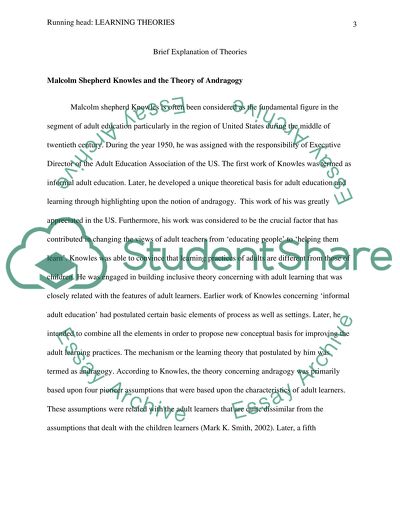Cite this document
(“Learning theories Research Paper Example | Topics and Well Written Essays - 4250 words”, n.d.)
Retrieved from https://studentshare.org/education/1475609-learning-theories
Retrieved from https://studentshare.org/education/1475609-learning-theories
(Learning Theories Research Paper Example | Topics and Well Written Essays - 4250 Words)
https://studentshare.org/education/1475609-learning-theories.
https://studentshare.org/education/1475609-learning-theories.
“Learning Theories Research Paper Example | Topics and Well Written Essays - 4250 Words”, n.d. https://studentshare.org/education/1475609-learning-theories.


